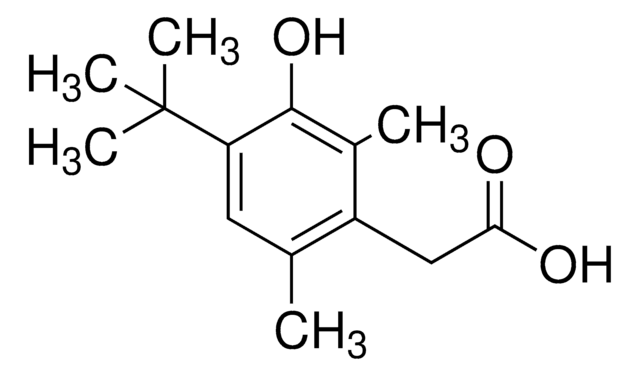1.08114
Tetrahydrofuran
≥99% (GC), EMPLURA®
Synonym(s):
THF, Tetramethylene oxide, Oxolane, Butylene oxide, Butylene oxide, Oxolane, Tetramethylene oxide
About This Item
Recommended Products
product name
Tetrahydrofuran, EMPLURA®
vapor density
2.5 (vs air)
Quality Level
vapor pressure
114 mmHg ( 15 °C)
143 mmHg ( 20 °C)
product line
EMPLURA®
Assay
≥99% (GC)
form
liquid
autoignition temp.
610 °F
expl. lim.
1.8-11.8 %
impurities
≤0.002% Free acid (as CH3COOH)
≤0.01% Peroxide (as H2O2)
≤0.1% Water
refractive index
n20/D 1.407 (lit.)
pH
7-8 (20 °C, 200 g/L in H2O)
bp
65-67 °C (lit.)
mp
−108 °C (lit.)
transition temp
flash point -21.5 °C
density
0.889 g/mL at 25 °C (lit.)
storage temp.
2-30°C
SMILES string
C1CCOC1
InChI
1S/C4H8O/c1-2-4-5-3-1/h1-4H2
InChI key
WYURNTSHIVDZCO-UHFFFAOYSA-N
Looking for similar products? Visit Product Comparison Guide
General description
Application
- Self-Assembly of Polyoxometalate-Based Nanoparticle Surfactants in Solutions: Highlights the use of Tetrahydrofuran as a critical solvent in the synthesis and self-assembly of polyoxometalate-based nanoparticles, exploring applications that could impact multiple fields including polymer research, drug delivery systems, and nanostructured materials (Xia et al., 2024).
- Highly sensitive fluorescence turn-OFF and reversible chemical sensor for Hg(2+) ion based on pyrene appended 2-thiohydantoin: Tetrahydrofuran is used as a key solvent in the development of a novel fluorescence-based chemical sensor for mercury detection, demonstrating its application in environmental monitoring and safety in laboratory settings (Gawas et al., 2024).
- Effect of Plasma pretreatment and Graphene oxide ratios on the transport properties of PVA/PVP membranes for fuel cells: This research employs Tetrahydrofuran as a processing solvent in the creation of polyvinyl alcohol/polyvinylpyrrolidone membranes enhanced with graphene oxide, focusing on improvements in ion transport for fuel cell applications (Abdel-Hamed et al., 2024).
- Optimized Incorporation of Furan into Diketopyrrolopyrrole-Based Conjugated Polymers for Organic Field-Effect Transistors: Utilizes Tetrahydrofuran as a solvent to aid in the synthesis of novel conjugated polymers, potentially leading to advancements in organic electronics and polymer research (Neu et al., 2024).
Analysis Note
Identity (IR): conforms
Free acid (as CH₃COOH): ≤ 0.002 %
Density (d 20 °C/ 4 °C): 0.887 - 0.889
Peroxide (as H₂O₂): ≤ 0.01 %
Water: ≤ 0.1 %
Stabilized with 2,6-Di-tert-butyl-4-methylphenol (BHT)
Legal Information
Signal Word
Danger
Hazard Statements
Precautionary Statements
Hazard Classifications
Acute Tox. 4 Oral - Carc. 2 - Eye Irrit. 2 - Flam. Liq. 2 - STOT SE 3
Target Organs
Central nervous system, Respiratory system
Supplementary Hazards
Storage Class Code
3 - Flammable liquids
WGK
WGK 1
Flash Point(F)
-6.2 °F - closed cup
Flash Point(C)
-21.2 °C - closed cup
Certificates of Analysis (COA)
Search for Certificates of Analysis (COA) by entering the products Lot/Batch Number. Lot and Batch Numbers can be found on a product’s label following the words ‘Lot’ or ‘Batch’.
Already Own This Product?
Find documentation for the products that you have recently purchased in the Document Library.
Customers Also Viewed
Our team of scientists has experience in all areas of research including Life Science, Material Science, Chemical Synthesis, Chromatography, Analytical and many others.
Contact Technical Service





